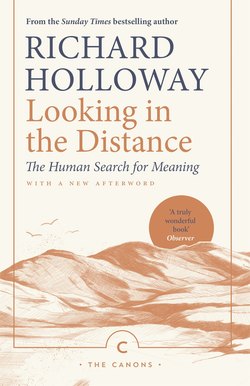Читать книгу Looking In the Distance - Richard Holloway - Страница 9
На сайте Литреса книга снята с продажи.
ОглавлениеPreface
Negative Capability: that is when man is capable of being in uncertainties, Mysteries, doubts, without any irritable reaching after fact and reason.
Letter of John Keats to George and
Tom Keats (No.45)
In 1999 I wrote a book called Godless Morality: Keeping Religion out of Ethics. As the title suggests, the book had two aims. I set out to argue against the claim that, without religion, people would soon give up on ethics; that without God there could be no human goodness. And I sketched an outline of what a purely secular or godless ethic would look like. I tried to find good human responses to a number of contemporary ethical challenges. The book was well reviewed in most of the secular newspapers and criticised by most of the religious press. It was praised by some philosophers and attacked by the then Archbishop of Canterbury, George Carey.
This new book is a companion volume. It attempts to do for human spirituality what Godless Morality tried to do for ethics. Spirituality is a notoriously difficult word to define. The word covers the inner life of human beings, all that is left when you have fed and sheltered them, and that’s just about everything that is important to them. Spirituality, like morality, has been the traditional preserve of religion. Indeed, it has a whole subsection of theology to itself, covering subjects such as prayer, silence and self-discipline. But for many people today religion is no longer a way of life that is possible for them. They may or may not ‘believe’ in God, but they are no longer comfortable in any of the traditional religions. This enormous group of people has been described as ‘the Church alumni association’ or ‘the Church in exile’. However, there is something faintly patronising in those descriptions. For many people in our secular society, religion has never held any attraction for them. They have not left the Church for the simple reason that they were never in it. And they do not cease to be interested in spirituality or the inner life of the human community just because they are not members of any of the religions on offer in our society. They are fascinated by the human passion for trying to understand the universe; and they admire the way science tries to look unflinchingly at the reality of things. They revel in the richness of human art and, through its various forms, they experience moments of grace and transcendence. They are increasingly fascinated by the complexities of the human psyche as revealed by the psychological study of human nature; and they are aware of the long human search for wholeness and healing. In short, there is a rich and diverse range of human spiritualities in the world, and countless people follow them without reference to religion or any necessary sense of God. I have written this book for that great company, because I now find myself within it.
The book is in four movements. The first three loosely cover some of the philosophical, psychological and ethical elements of human spirituality. The fourth is about endings, the ending of traditions and the ending of human life itself in death. Reading it over, I can see that this is a very personal book. For better or for worse, it is one man’s account of what he has seen after a lifetime spent looking in the distance.
